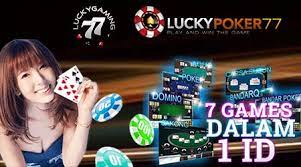Casinos have captivated humanity with their blend of chance, skill, and entertainment for centuries. From ancient dice games to high-tech gaming hubs, the evolution of paitoangka is a fascinating journey through human history, culture, and technology.
Ancient Beginnings: Dice and Divination
The concept of gambling dates back to ancient civilizations. The earliest evidence of dice games comes from Mesopotamia around 3000 BCE. Dice were used not only for games but also for divination, a way of predicting the future or making decisions. Ancient Greeks and Romans enjoyed a variety of gambling activities, including dice games, board games, and even betting on chariot races. The Romans, in particular, were known for their public games and betting on gladiatorial contests.
The Rise of the Casino: Venice’s Golden Age
The term “casino” itself originated in Italy. In the 17th century, Venice established the Casino di Venezia, considered the oldest casino in the world. Unlike modern casinos, this early establishment was more of a social club where patrons could enjoy card games and conversation. The term “casino” was derived from the Italian word “casa,” meaning house, and initially referred to a small, cozy villa or pavilion. Over time, it came to denote a place where gambling took place.
The Birth of Modern Gambling: Monte Carlo and Las Vegas
The 19th century saw significant changes in the casino landscape. The opening of the Casino de Monte-Carlo in Monaco in 1863 marked the beginning of the modern casino era. The Monte Carlo casino became synonymous with luxury and high stakes, attracting the wealthy elite from around the world.
The 20th century brought another landmark development: Las Vegas. Originally a small desert town, Las Vegas transformed into the gambling capital of the world. The legalization of gambling in Nevada in 1931 laid the foundation for Las Vegas’s rapid growth. With its iconic casinos, such as The Bellagio and Caesars Palace, Las Vegas became a symbol of opulence and entertainment, drawing millions of visitors each year.
The Digital Revolution: Online Casinos and Virtual Reality
The digital age has revolutionized the casino industry. The advent of online casinos in the late 1990s made gambling accessible to a global audience. Players can now enjoy classic games like poker and roulette from the comfort of their homes. Online casinos offer a wide range of options, including slots, table games, and live dealer experiences.
In recent years, virtual reality (VR) has begun to shape the future of casinos. VR technology allows players to immerse themselves in a virtual casino environment, providing a more interactive and engaging experience. This innovation aims to bridge the gap between physical and online gambling, offering the thrill of a real casino without leaving home.
The Future of Casinos: Sustainability and Regulation
As casinos continue to evolve, there is a growing emphasis on sustainability and responsible gambling. Many modern casinos are implementing green practices to reduce their environmental impact. Additionally, there is an increased focus on promoting responsible gambling and providing resources for players who may be struggling with addiction.
Regulation remains a crucial aspect of the casino industry. Governments and regulatory bodies work to ensure fair play, prevent illegal activities, and protect consumers. The balance between regulation and innovation is key to the industry’s future success.
Conclusion
The history of casinos is a testament to humanity’s enduring fascination with games of chance and skill. From ancient dice to high-tech VR experiences, casinos have evolved dramatically, reflecting broader changes in society, technology, and culture. As the industry continues to innovate, it will undoubtedly offer new forms of entertainment while addressing the challenges of sustainability and regulation. Whether in a luxurious casino in Monte Carlo, a bustling resort in Las Vegas, or a virtual environment, the allure of gambling remains a timeless and universal phenomenon.


